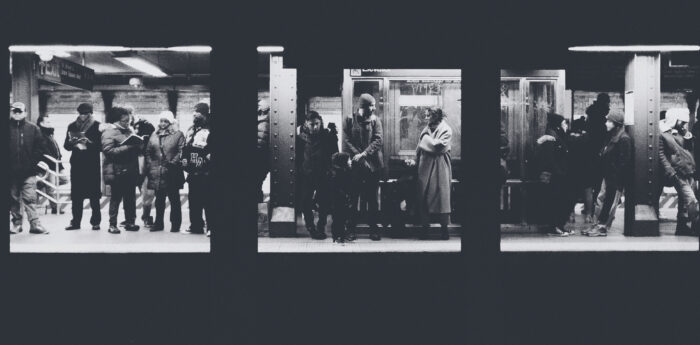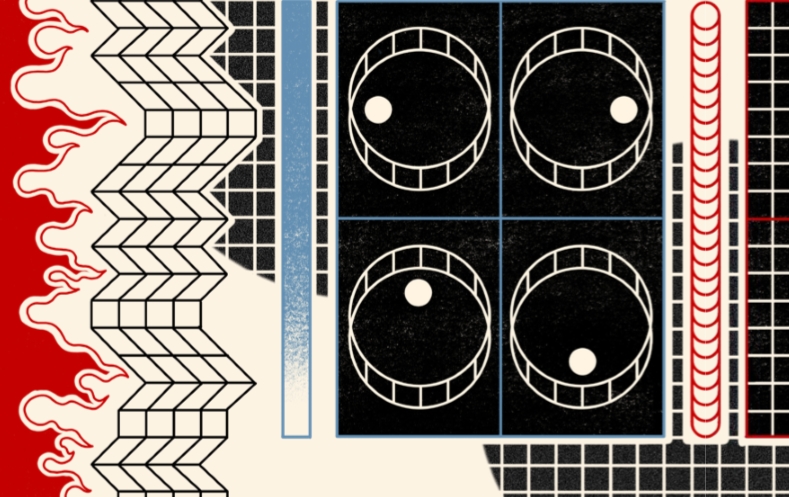
In turn, we use cookies to measure and obtain statistical data about the navigation of the users. You can configure and accept the use of the cookies, and modify your consent options, at any time.

A lot of us can relate to the notion of burnout – that sensation experienced when we just cannot continue with our work, when we are feeling stressed, overwhelmed, overworked, depressed, or just plain empty. Burnout can creep up on us in our working lives. If you have not yet felt it yourself, you may in due course, and you have certainly witnessed it in others. But what causes burnout? Why does it appear to be a growing phenomenon, and can we imagine a future without it?
Beyond the causes which are usually invoked to explain burnout, including difficult colleagues and overbearing workloads, there may be more fundamental reasons for the phenomenon. It may well be characteristics of the new world of 21st century work which are at fault. Jonathan Malesic, author of a new book titled The End of Burnout, points out that this is a world built on the idea of work being an individual status point and symbol of success, which is meant to give unique meaning to our lives. Burnout is what happens when work no longer provides us with these things.
After experiencing burnout himself, Malesic, a former tenured professor of theology who holds a PhD from the University of Virginia, directed new energy into researching the phenomenon. In his book, he explores the cultural basis for burnout, taking an approach that combines science and philosophy. His aim is to understand the gap between our perceived notion of what our jobs mean to us and the reality of their daily manifestation, including experiences of unfairness, lack of autonomy, breakdown of the collegial community, and mismatches of values. Malesic argues that modern jobs have somehow been constructed to symbolise our personal value and represent our very identity, a dangerous creation which can result in serious mental health issues.
Our regular contributor, Conor Purcell, had the opportunity to interview Malesic for FARSIGHT, speaking by video call between Purcell’s home in County Donegal, Ireland, and the interviewee’s in Dallas, Texas.

Why did you write this book and why now?
When I was a theology professor, one of my biggest interests in research and teaching was the problems and questions that arise around our work. These questions are ones of meaning, morality, spirituality, and other related topics.
I taught a class for undergraduates called Why Work and I wrote articles on similar issues. Then those questions became suddenly very important to me because, in some way, I kind of became that which I was researching. I became a burned-out, frustrated worker, who could no longer articulate the meaning of what he was doing. The work was causing a huge problem in my life, and so I eventually quit the job. As I tried to figure out what had happened to me, this term burnout seemed to make a lot of sense, and I started conducting research on the matter.
I found that there was this gap in the conversation around work, and that we needed an updated narrative around burnout which took into account some of the moral, cultural, and spiritual questions that I get into in the book.
What do you think causes burnout?
The most obvious causes are probably those around workload and the amount of work you’re doing versus the rewards that you’re getting for it, both material and immaterial. But in addition there’s this community at work which should be based around fairness. If you feel like you’re being treated unfairly, or if the community at your workplace breaks down due to rivalries or other kinds of conflicts, that can cause mental stress. If you have some control over your work, that is generally felt to be a good thing. But if you have less autonomy than you expected, that will contribute to burnout. Additionally, there might be conflicts in values. If you value one thing and your employer values something quite different, that can manifest itself negatively.
I also want to be clear that burnout is not an index of how bad your job is. A good example of this, I think, is the career of a physician. We tend to think of physicians as having pretty good jobs. They generally have good salaries and a lot of social prestige. They are doing interesting and important work. But they have very high rates of burnout, certainly here in the states, and I’m sure in Europe as well. Their workload is very intense, and while their reward is often pretty good, they sometimes don’t have as much autonomy as they might have expected, especially if they’re working in a large healthcare system. They may be seeing patients for just, say, fifteen minutes, and don’t have the time to give them the treatment that they think they really need. This kind of stress can add up to burnout in even so-called ’good jobs’.
You talk about burnout culture developing over the past fifty years or so. Why is that?
It’s because our ideals for work have changed while the quality of our work experience has diminished, and that has an impact on the individual. This is characteristically a post-industrial kind of disorder, which hinges on specific ideas about work that are characteristic of our time. That is, thinking about work not just as something that earns you a living, but as a means to gain all sorts of immaterial benefits as well. The three that I mentioned most often in the book are dignity, character, and purpose. During the industrial revolution there was a lot of concern amongst industrialists about the character of the workers. There were worries that they were drinking too much, and that they needed supervision. Essentially, it was these concerns which led to the notion that working a lot is a good thing and keeps people out of trouble. So the suggestion that work builds character is not entirely new. But I think the idea that work is a site of purpose and transcendent, spiritual meaning – in a Silicon Valley kind of sense – is pretty new. That’s an idea that has really spread during the past fifty years.
Additionally, a factor that I think is widely experienced across wealthy countries is diminishing job security. Workers don’t have the same protections that they had in the mid-to-late 20th century. Some workers live with this constant anxiety about losing their jobs.
Moreover – and I find this one particularly fascinating – there has been this shift in the Western world to a service economy where your personality, your emotions, even your facial expressions, have become a part of the means of production. So work not only occupies more of your time – it occupies more of your person. All of that makes work more intense and insecure while our ideals for it are higher than ever.
What is your vision for a future with better working conditions and less burnout?
I think that we must look at both the material and immaterial things that we get from work, namely: productivity and salary; as well as dignity, character, and purpose. We need to think about how we can get more of those benefits elsewhere in our lives. There’s no reason that we must feel a sense of social belonging through work alone. Here in the US, politicians are constantly talking about the dignity of work, and what they usually mean is that you don’t have dignity until you begin working for pay. Essentially you don’t count, and you’re often legally ineligible for social benefits if you don’t have a job or aren’t pursuing a job.
If we shifted that expectation and started to see the dignity that people already have – before they ever work a day in their lives – then that would considerably lower the stakes of work. Your sense of self-worth would no longer be on the line. What’s more, if we had more robust means of pursuing purpose and transcendence, or however you want to call it, outside of work, then we wouldn’t have to expect work to totally fulfil us. All this would lower the stakes of work at a cultural level.
So those are kind of intellectual changes, I suppose, but I really think that there could be legal and policy changes too. Proposed ideas include shorter standard work weeks, more generous paid leave policies, and universal basic income, so that if you’re not working, you are not rendered incapable of feeding yourself or your family.
Some commentators predict a future with more freelance workers and a more prominent gig economy. What do you think?
I have mixed feelings about that. On the one hand I am now a freelancer, and I do like the autonomy of it. Deadlines can pile up and it can be stressful, but I also have a pretty good amount of control over the projects that I take on, which is definitely a good thing. I have not experienced burnout in the last six years since I’ve worked for an institution. On the other hand, there is the precarious nature of it, that is, finding regular work. And if you are indeed successful, it can be hard to set limits on your work when you’re the only one responsible for it. There is no limit to the number of projects that one can take on and it often feels like you’re just falling short.
I really think that the solution to burnout has to be cultural. We need to have other people who are following and enforcing the same new norms, to set real limits on work, and to acknowledge good work, making working life better. It’s just a really difficult task for a person to go it alone without a broader cultural shift. I think that once a real appreciation of burnout becomes commonplace, the world will shift to recognising new ways of work and alternative pathways.